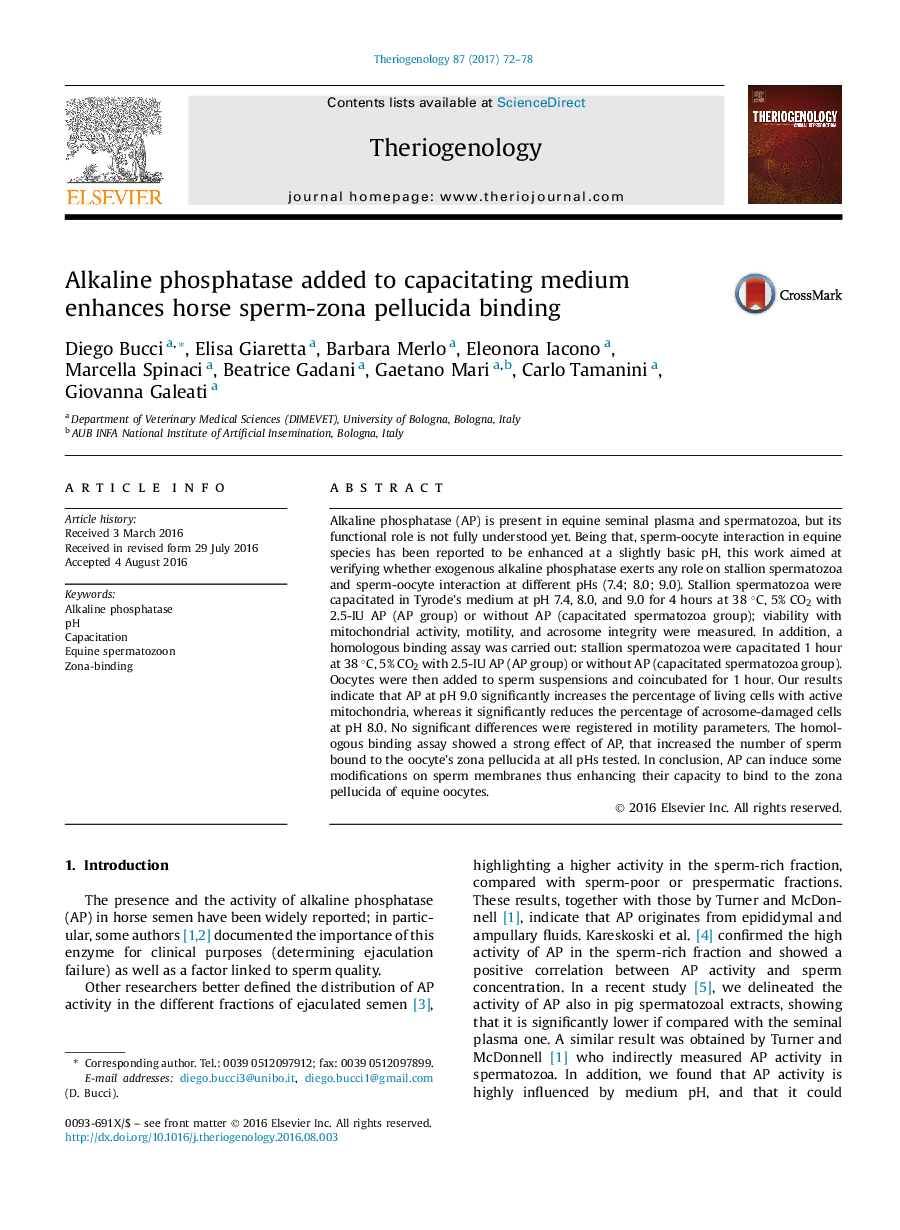| Article ID | Journal | Published Year | Pages | File Type |
|---|---|---|---|---|
| 5523321 | Theriogenology | 2017 | 7 Pages |
Alkaline phosphatase (AP) is present in equine seminal plasma and spermatozoa, but its functional role is not fully understood yet. Being that, sperm-oocyte interaction in equine species has been reported to be enhanced at a slightly basic pH, this work aimed at verifying whether exogenous alkaline phosphatase exerts any role on stallion spermatozoa and sperm-oocyte interaction at different pHs (7.4; 8.0; 9.0). Stallion spermatozoa were capacitated in Tyrode's medium at pH 7.4, 8.0, and 9.0 for 4 hours at 38 °C, 5% CO2 with 2.5-IU AP (AP group) or without AP (capacitated spermatozoa group); viability with mitochondrial activity, motility, and acrosome integrity were measured. In addition, a homologous binding assay was carried out: stallion spermatozoa were capacitated 1 hour at 38 °C, 5% CO2 with 2.5-IU AP (AP group) or without AP (capacitated spermatozoa group). Oocytes were then added to sperm suspensions and coincubated for 1 hour. Our results indicate that AP at pH 9.0 significantly increases the percentage of living cells with active mitochondria, whereas it significantly reduces the percentage of acrosome-damaged cells at pH 8.0. No significant differences were registered in motility parameters. The homologous binding assay showed a strong effect of AP, that increased the number of sperm bound to the oocyte's zona pellucida at all pHs tested. In conclusion, AP can induce some modifications on sperm membranes thus enhancing their capacity to bind to the zona pellucida of equine oocytes.
